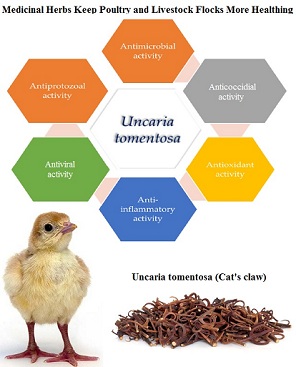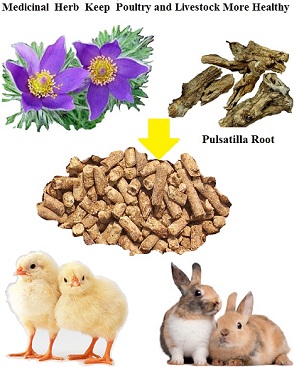- Plant-Based Protein
- Natural Plant Flavours
- Food and Dietary Supplement Ingredients
- Fruit Juice Powder
- Animal Nutrition Ingredients
- Water Soluble Ingredients
- Cosmetic Ingredients
- Unveiling the Therapeutic Potential of Rabdosia Rubescens: A Comprehensive Review
- What are the medicinal properties of Rabdosia Rubescens?
- Nutritional value of Orange Juice Powder compared to fresh orange juice.
- Processing Conditions and Nutritional Value of Orange Juice Powder
- Exploring the Versatility of Herbal Extracts in Food Flavors
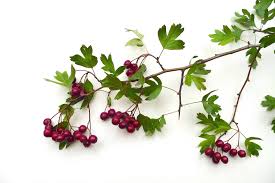
What are the health benefits of hawthorn leaf?
Welcome to our blog! Today, we are diving into the world of hawthorn leaf and uncovering its incredible health benefits. Whether you're a fan of herbal remedies or simply curious about natural alternatives, hawthorn leaf is definitely worth exploring.
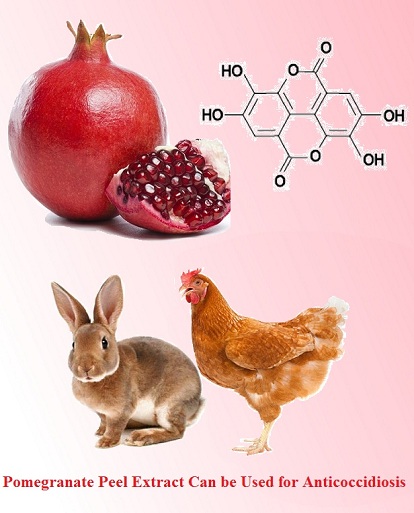

Pomegranate,Punica granatum,Antibacterial,Anticoccidial effect in livestock and poultry
Pomegranate (Punica granatum L.), fruit and peel have been shown to have anti-inflammatory, antioxidant, antibacterial and antiparasitic (including anti-coccidial) properties. In the interests of food safety and public health, Punica granatum and its compounds are now emerging as an alternative approach to treat parasitic like coccidiosis or other diseases in poultry and livestock.
Background:
Parasitoses represent a limiting factor in the breeding of poultry species, both in high-production commercial rearing farms or even in rustic breeding systems, where economic losses can be significant. Among the most pathogenic parasites, coccidiosis caused by Eimeria spp. is distinguished by severe enteropathy, which promotes anorexia, decreased reproduction and posture, and is responsible for high levels of mortality in young animals.
In the interests of food safety and public health, plants and their compounds are now re-emerging as an alternative approach to treat parasitic diseases.
Pomegranate (Punica granatum L.), fruit and peel have been shown to hold tremendous potential for the treatment of various ailments. Incorporation of pomegranate, peel and their extracts, as key functional ingredients in various ethnopharmacological formulations are widely accepted in almost all cultures of the World.
Poultry and livestock coccidiosis is mainly controlled by the use of chemotherapeutic agents. Studies have reported anti-inflammatory, antioxidant, antibacterial and antiparasitic (including anti-coccidial) properties associated with the extract of pomegranate (Punica granatum) in several animals, parasites and conditions.
What you may get from us: If you're developing a feed additive that contains Pomegranate.I think you can find the information or products you need here.
Simple production process in our factory: After the plant is collected, It can be made straight powder. Or the raw material will be processed by solvent extraction, separation and purification, filtration, concentration, drying and other steps to form the final products. We may also design a prouction process based on your special requirements.
Through the physical and chemical processes, those compunds you don't want was removed, and the compunds preferred was accumulated. Which make the products achieve the best effects.
|
Pomegranate Peel Straight powder or Pomegranate Peel Extract |
||
|
Appearance |
Powder |
|
|
Color |
Brown |
|
|
Partical size |
Normally pass through 60mesh |
|
|
Pack size |
25 kg per paper drum |
|
|
Purity of active compunds |
20%,30%,40% Tannins or polyphenols |
By UV |
|
For pricing or more information, please call 86 29 88444632 or send an email to Sales@nutraherbsource.com.
|
||
General Information
Common Name: Pomegranate hull extract, Pomegranate peel Extract, Pomegranate seed Extract.
Latin Names: Punica granatum, Punicaceae
Plant Description:
Pomegranate: The pomegranate (Punica granatum, Punicaceae)is an attractive tree that grows up to 5 m in height. It has glossy, leathery leaves and bears showy red f lowers at the branch tips. Thedistinctive shape of the spherical fruit (2.5 to 5 inches in diameter)is imparted by the prominent f leshy red calyx which persists after flowering. The fruit has a tough leathery skin that is variously referred to as the rind, husk, or pericarp. The interior of the fruit is compartmentalized by membranous walls (carpels) and white spongy pith. The resulting locules are packed with 600 to 800 sacs or arils, each of which contains one seed and juicy pulp. Conventional pomegranate juices normally constitute 45 to 65% of the whole fruit.
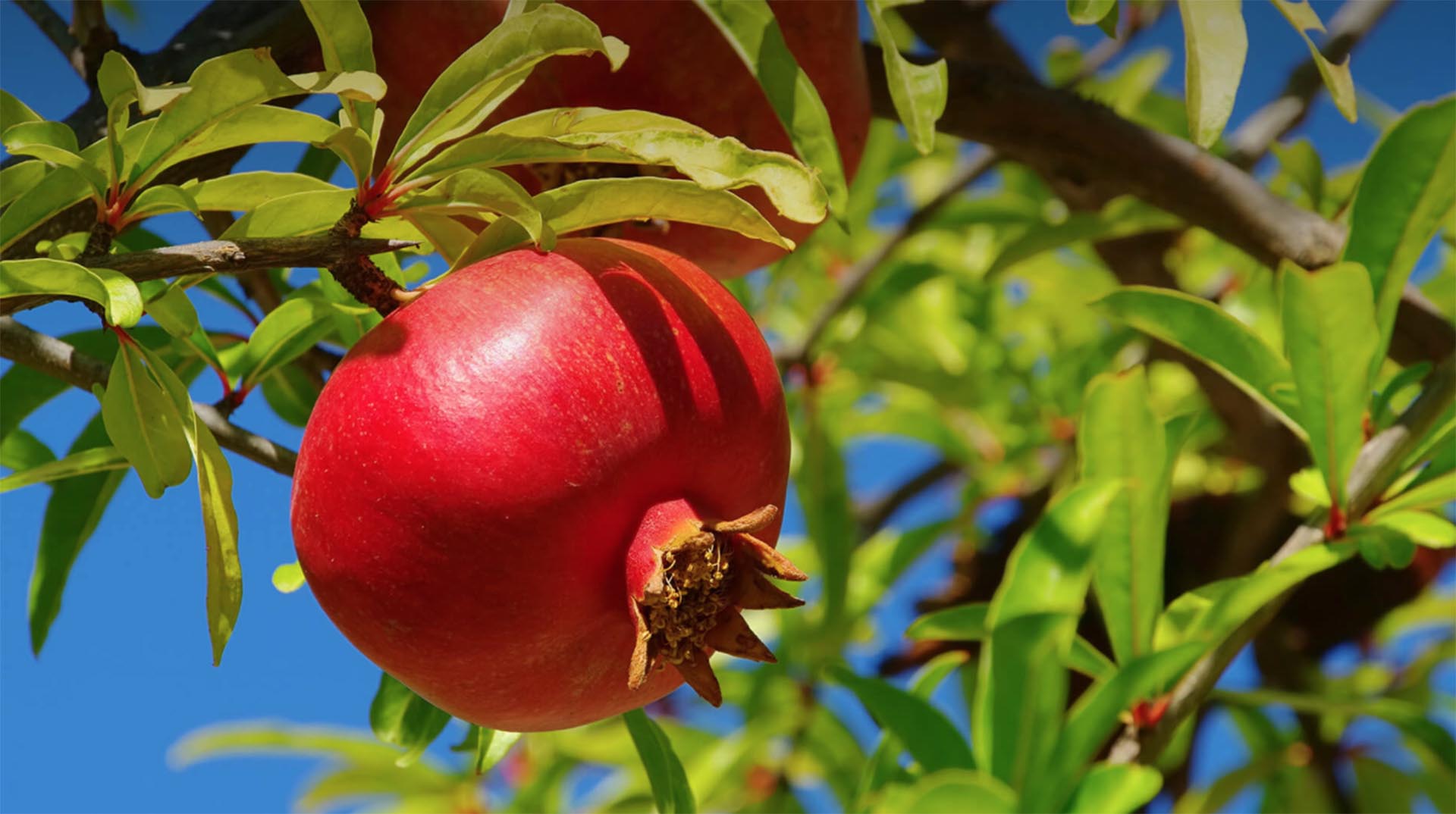
Compounds of Pomegranate.
Ellagic acid is a naturally occurring polyphenolic constituent found in Pomegranate fruit. The health benefits associated with pomegranate have led to the development of pomegranate extracts as botanical dietary supplements. Pomegranates contain hydrolyzable tannins in the form of punicalagins and punicalin as well as tannin-based complex oligomers that account for much of the antioxidant activity in juice. The content of ellagic acid has been used to standardize most pomegranate extract dietary supplements marketed.
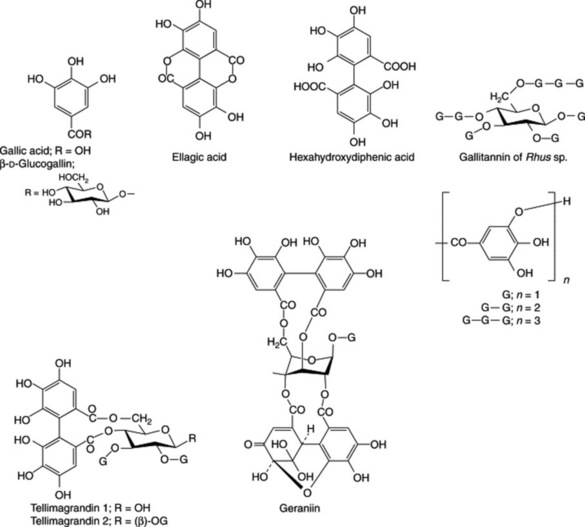
Antibacterial activity of Pomegranate Peel extract
Several in vitro studies showed that pomegranate extract may inhibit growth of Staphylococcus aureus, Streptococcus pyogenes, Diplococcus pneumoniae, Salmonella enteritidis, Listeria monocytogenes, Yersinia enterocolitica, Escherichia coli and Candida albicans.
The results of the antibacterial study showed the inhibition zones exerted by Pomegranate Peel extract against Escherichia coli, Salmonella and Staphylococcus aureus. Pomegranate Peel extract have a similar inhibitory effect as Ampicillin in case of Gram negative bacteria Escherichia coli and Salmonella. On the other hand Pomegranate Peel extract showed better inhibition effect towards the Gram positive bacteria Staphylococcus aureus. This result is in accordance with Hameed et al. (2009) who reported the superiority of alcoholic extract of pomegranate peel in inhibiting pathogenic bacteria as compared to both Ampicillin and Chlorominiphinicol as standard antibiotics. The antibacterial activity of Pomegranate Peel extract is mainly attributed to the main chemical constituents of pomegranate peel which include powerful antibacterial compounds such gallotannins, ellagic acid derivatives and flavonols.
Pomegranate Peel extract may improve broilers’ Productive Performance
Dietary supplementation of Pomegranate Peel extract will have effects on the productive performance of broiler chickens. During the first stage of the growth experiment (1-14 days) there were no significant differences (P<0.05) between the control group and Pomegranate Peel extract group for body weight, weight gain, feed intake or feed conversion ratio. On subsequent growth periods (14-28days) and (29-42 days) the supplementation of Pomegranate Peel extract in broilers diet resulted in a significant (P<0.05) increase in body weight and weight gain of the chickens. The overall results of the growth experiment (1-42days) clearly demonstrated that the addition of Pomegranate Peel extract as growth promoter into chickens’ diet caused a significant improvement in the productive parameters of the broilers. The body weight, weight gain and feed intake of broilers in Pomegranate Peel extract group were significantly (P<0.01) higher as compared to the control group. Meanwhile there were no significant differences (P<0.05) in feed conversion ratios between both groups.The improvement in broilers’ productive performance upon addition of Pomegranate Peel extract as natural growth promoter in broilers’ diet is attributed to the positive effect that plant feed additives exert on gastro-intestinal enzymatic activity and thus enhancing nutrients absorption and digestibility. The presence of active substances in plant extracts improve digestion and metabolism and have antibacterial and immune stimulant activities in animals. Another reason for the beneficial effect of using Pomegranate Peel extract as growth promoter could be due to its antibacterial activity decreasing the pathogens in the intestine and as consequence more nutrient is available in the intestinal lumen for absorption to convert body mass.
Anticoccidial effect in rabbit
Pomegranate peel extract has exterminatory actions to rabbit coccidia oocysts cultured in vitro. Excrement (24 h, 35 g each rabbit) collected from eighteen rabbits infected with coccidian, weighing 2.0 to 2.5 kg, separated and extracted the coccidia oocysts with saturation salt water floating method. The coccidia oocysts were cultivated in distilled water, aqueous extract of pomegranate peels, pomegranate flavonoids, pomegranate polyphenols and Robenidine HCl for 24, 48 and 78 h, respectively. The number of rabbit coccidia oocysts was observed with the optical microscope. The effects of different concentrations of drugs and different cultivated time on the amount of rabbit coccidia oocysts were estimated. The results showed that comparing with distilled water group, the amount of rabbit coccidia oocysts separately cultivated in 72 h and 5,10 mg of the four drugs groups reduced, and the reducing number ranged in descending order was aqueous extract of pomegranate peels group, pomegranate flavonoids group, pomegranate polyphenols group and Robebidine HCl group. The onset time of the extracts of pomegranate peel were 48 and 72 h. The amount of rabbit coccidia oocysts cultivated in 24,48, 72 h and 1 mg of the four drugs groups were not reduced significantly (P>0.05). There were many notes which indicated that the extracts of pomegranate peel were the stronger exterminatory action to the rabbit coccidia oocysts cultured in vitro. The exterminatory action of aqueous extract to the rabbit coccidia oocysts was the strongest, followed by pomegranate polyphenols and pomegranate flavonoids in the 3 extractions from pomegranate peel. The exterminatory action had a certain positive correlation with the dose.
Anticoccidial effect of different solvent extracts of the pomegranate peel of Punica granatum.
Pomegranate Peel extracts were prepared using solvents of different polarity. A high dose of crude extracts (300 mg/kg body weight) was tested for possession of anticoccidial activity against experimentally induced coccidial infection in broiler chicken. Activity was measured in comparison to the reference drug amprolium on the basis of oocyst output reduction, mean weight gain of birds and feed conversion ratio. Oocyst output was measured using Mc-Masters counting technique. Acute oral toxicity study showed that crude extracts of P. granatum are safe up to dosage of 2000 mg/kg body weight. LD50 was not determined as mortalities were not recorded in any of the five groups of chicken. For anticoccidial activity crude methanolic extract of the fruit peel of Punica granatum showed the maximum effect as evident by oocyst output reduction (92.8 ± 15.3), weight gain of birds (1403.0 ± 11.9 g) and feed conversion ratio (1.66 ± 0.04), thereby affirming the presence of alcohol soluble active ingredients in the plant. Different doses (100-400 mg/kg body weight) of the pomegranate peel methanolic extract, were tested.the most active extract on Eimeria tenella and observed a dose dependent effect. From the present study it can be concluded that alcoholic extract of the fruit peel of Punica granatum has significant potential to contribute to the control of coccidian parasites of chicken.
Antiviral properties
Haidari and others (2009) evaluated the 4 major polyphenols in pomegranate extracts, ellagic acid, caffeic acid, luteolin, and punicalagin and identified punicalagin as the anti‐influenza component, because this compound blocked replication of the virus RNA, inhibited agglutination of chicken RBC's by the virus, and had viricidal effects. Indeed, it inhibited the replication of human influenza A/Hong Kong (H3N2) in vitro. Anti‐influenza viricidal activity has also been associated with other flavonoid compounds (Song and others 2005). The pomegranate has been used in phage amplification assays as a viricidal agent (De Siqueira and others 2006). In addition, pomegranate extract has been reported to have microbiocidal effects on HIV‐1 (Neurath and others 2005).
Antidiarrheal properties
Pillai (1992) investigated the antidiarrheal activity of aqueous and alcohol extracts of the pomegranate fruit rind in 3 experimental models using albino rats. The extracts exhibited significant activity in rats when compared to loperamide hydrochloride, a standard antidiarrheal drug. Qnais and others (2007) evaluated the antidiarrheal effects of the aqueous extract of pomegranate peels in rats. The results revealed that the extract exhibited a concentration‐dependent inhibition of the spontaneous movement of the ileum and attenuated acetylcholine‐induced contractions. Olapour and others (2009) evaluated the antidiarrheal effect of pomegranate peel extract in rats given an oral dose of 400 mg/kg. The results showed that pomegranate peel extract decreased the number of defecations and the weight of feces in comparison with the control.
Effects on Gut microbiota
The consumption of pomegranate products leads to a significant accumulation of ellagic tannins in the large intestine (Seeram and others 2006) where they interact with the complex gut microflora. Bialonska and others (2009) reported that the effect of pomegranate ellagic tannins on bifidobacteria was species‐ and tannin‐dependent. The growth of Bifidobacterium animalis ssp. lactis was slightly inhibited by punicalagins, punicalins, and ellagic acid. Pomegranate extract supplementation significantly enhanced the growth of Bifidobacterium breve and Bifidobacterium infantis.
- Prev:Prunus mume extract, Antimicrobial, Anticoccidial, Anti-bursal disease, livestock and poultry
- Next:Amla,Emblica officinalis-Growth promoter in livestock and poultry




